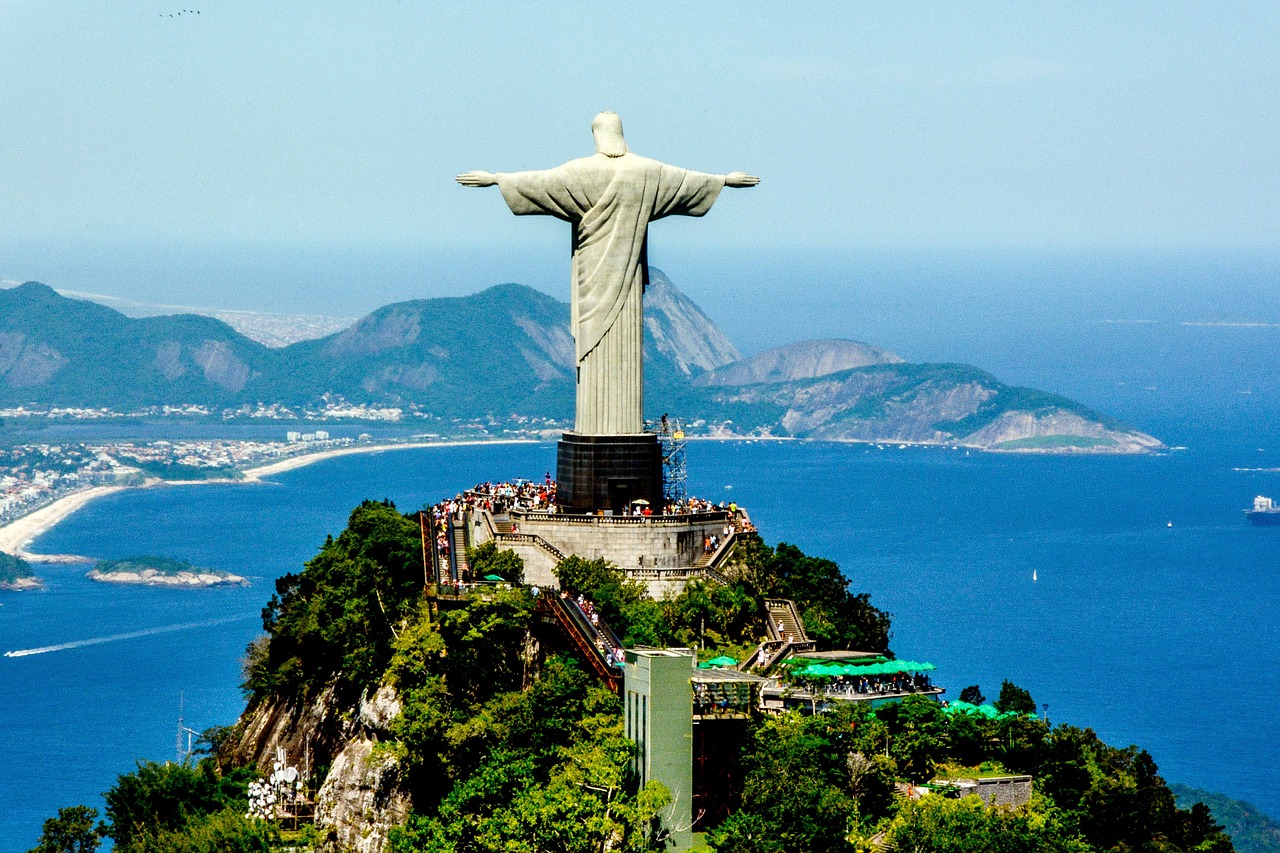Gambling
Brazil gambling regulation complete as government publishes final ordinances

With less than five months until the anticipated launch date of the legal betting market in Brazil, the final gambling regulations have been outlined in ordinances published by the ministry of finance’s Secretariat of Prizes and Bets (SPA).
The four-phase regulatory rollout set out in April is now complete and the launch of legal gambling in Brazil is on track for 1 January 2025.
Jump to:
Responsible gambling, including a ban on influencer advertising
Operators have been submitting their applications for licences, with the total number of requests now at six after NSX Group’s Betnacional filed its application on Thursday (1 August) with less than three weeks to go until the 90-day initial window of preference closes.
Operators who apply before 20 August will have their applications prioritised by the SPA and ensure they are processed by the expected launch date of the market.
Those application requests are likely to accelerate now the full regulations have been established.
Increased clarity on online games
Normative Ordinance No 1,207 was published on Wednesday (31 July) and gave the green light for online games in Brazil, including the controversial Fortune Tiger game.
Udo Seckelmann, head of gambling & crypto at Bichara e Motta Advogados, believes the decision to allow games such as Fortune Tiger is the correct one to aid channelisation towards legal offerings.
“The exclusion of games gives power to the grey/black market, which is what the regulator doesn’t want,” Seckelmann says.
Aposta Ganha CCO Hugo Baungartner previously told iGB he expects the publication of the online games ordinance to be the catalyst for operators to apply.
With six applications in already, Seckelmann still believes around 60 operators will apply in total. Baungartner, meanwhile, predicts the tally will be between 20 and 25.
Brazil races to the finish line
Following the publication of Normative Ordinance 1,207, four more were announced to round out the regulation rollout. These covered industry contributions to the state, the monitoring and inspection of gambling activities, responsible gaming (RG) guidelines and sanctioning for those operators who fall foul of the regulations.
After the final ordinance was published, the Brazilian Institute of Responsible Gaming (IBJR) praised the “effort and commitment” shown by federal agencies to help establish the regulations.
“We hope that this sector will develop responsibly, following the guidelines proposed by SPA,” the IBJR statement read.
Normative Ordinance No 1,225 on monitoring and inspection
Normative Ordinance No 1,225 Inspection measures will apply to those individuals or legal entities that have the required authorisation from the SPA to operate fixed-odds betting. Those actions must be based on evidence and be proportionate to the identified risks.
The ordinance established the SPA can coordinate with other public bodies to monitor activities and ensure ongoing compliance with regulations.
Inspections must be scheduled and prepared by the SPA. They can be remote or in-person and will last as long as necessary to “elucidate the facts” of a situation.
If requested to, operators must give information within 10 days of receipt of an official request letter. Failure to comply could lead to harsher punitive action. Operating agents must also contact the SPA and public prosecutor’s office if any manipulation or reports of such activities are raised.
Normative Ordinance No 1,212 on social allocations
Later on Wednesday, the SPA published Normative Ordinance No 1,212, which centres on how the gambling industry transfers proceeds to the state.
Transfers must be collected through a Federal Revenue Collection Document (DARF) and then made to the National Treasury Single Account.
Operating agents will be responsible for using the correct revenue code and will be subject to civil, administrative and criminal liability if the process is not done correctly.
Should prizes expire for bettors, the prize amount will be collected by the National Treasury Single Account. All records of transfers to the treasury must be kept available to the SPA for at least five years.
A 12% gross revenue tax for operators has already been established, as well as a monthly inspection fee on a sliding scale from equivalent to $10,000 (£7,847/€9,232) to $390,000. Additionally, there will be a 15% tax on player winnings above BRL2,824 (£437.77/€508.05/$547.25).
Normative Ordinance No 1,231 on RG
Normative Ordinance No 1,231 informed operators they must “act diligently” in the development of their betting systems, as well as advertising and marketing, with RG principles respected to try and combat the rise of gambling addictions.
Awareness of the risks of gambling addictions must be promoted by operators through collaboration with the educational sector, as well as their own campaigns.
Communication with gamblers must be maintained, while an RG policy must also be developed by each operator, with tools such as betting limits and self-exclusion periods available for players to protect against gambling harms. Operators can also suspend bettors deemed high risk.
It also falls upon operators to prevent use of its systems from demographics such as those aged under 18 and anyone who may be able to impact the results of a sports fixture.
Influencers banned from advertising
In terms of marketing, all advertising must be guided by social responsibility and the promotion of RG. It also must work against offshore gambling.
Additionally, ads must not present betting as “socially attractive” and cannot involve statements from influencers or celebrities that imply gambling leads to personal, social or financial success.
Eduardo Carvalhaes and Karen Coutinho, lawyers and spokespersons for Brazilian law firm Lefosse, describe the laws on advertising as “vital” to clarify what operators will be allowed in their marketing.
Seckelmann agrees, saying Normative Ordinance No 1,231 will help to protect vulnerable players from gambling harms, with the ban on influencer advertising a key component.
“Now, for the first time, Brazil has clear directions on how betting advertising shall be conducted and how the responsible gambling principles shall apply to their operations in order to protect minors and the vulnerable,” Seckelmann explains.
“The problems and issues regarding Fortune Tiger were never due to the game itself, but on how the advertising by the influencers was being done. Now that we have the Responsible Gambling and Advertising Ordinance, these issues will be considerably reduced.”
For sponsorship, operators must be clearly identifiable as the sponsor and refrain from appealing to children. Company logos cannot be featured on goods or article intended for sale to children.
Electronic channels used by operators can only use the Bet.br domain, while bonuses, rewards or goods cannot be based on the financial contribution of a bettor.
Normative Ordinance No 1,233 on sanctions
The final ordinance, Normative Ordinance No 1,233, focused on the sanctions available for the SPA to take action against operators who stray the wrong side of regulations.
For operators who fail to adhere to regulation, the SPA can terminate licences in the most serious of cases. At the other end of the spectrum, the SPA can issue warnings if violations aren’t that serious.
Among the offences that’ll draw attention include operating without the required licence, operations that don’t comply with regulations and the obstruction of an SPA inspection.
Failure to provide relevant documents or the correct information could also lead to SPA sanctions, as would advertising that isn’t authorised by the ministry of finance.
A sub-secretariat of monitoring and inspection of the SPA will initiate, instruct and analyse all sanctioning processes. That process will then be forwarded onto the sub-secretariat of sanctioning action, which will make a decision on what action it’ll take. Defendants must present a response within 30 days of being notified.
In terms of fines, a fine can be between 0.1% to 20% of proceeds over the year prior before proceedings were started, although that fine can never exceed BRL2bn. A partial or total suspension of up to 180 days can also be issued, as well as a ban on obtaining new licences or accreditations for a period of up to 10 years.
While the BRL2bn figure is “too harsh” in Seckelmann’s view, he feels it will serve as a useful deterrent.
“I believe the reason for that is to scare operators and make them more careful not to commit any infringements.”
Does framework create foundations for thriving Brazil gambling market?
With all of the ordinances now published, the industry feels the success of their implementation will only become clear when the market actually goes live.
Carvalhaes and Coutinho are confident though that the regulations will prove more than adequate.
“The regulations issued by the ministry of finance reflect the best international practices in the industry and aim to ensure legal security for a market that has been growing exponentially and operating in Brazil without clear rules,” Carvalhaes and Coutinho declare.
“This depends on effective oversight and monitoring by the authorities of the rules that must be followed by all stakeholders involved in the sports betting industry chain.”
Seckelmann pointed to two areas in which the success of regulation will be judged.
“First, with the channelisation rate and, second, with the effective measures to be applied by the regulator to prevent non-licensed operators to offer bets to Brazilian citizens.”







/cdn.vox-cdn.com/uploads/chorus_asset/file/25626295/247263_iphone_16_pro_AKrales_0799.jpg)
